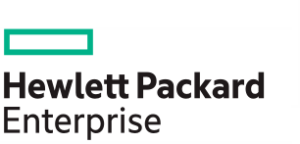Although scalability is proven to be among the most valuable benefits that Intelligent Automation (IA) brings to a business, more than half of enterprise automation programs see this as a major hurdle, with only the top 10% achieving significant scale.
Many companies have adopted some form of automation, but the number leveraging IA is still growing. Successful automation requires a holistic approach to scale, due to differences in complexity of what can be solved with rules-based robotic process automation (RPA) versus intelligent solutions. A scalable solution may need additional roles, updated technology, revised operations and infrastructure, and different business processes to support automated use cases.
Why are some enterprises experiencing success in scaling automation and others struggling? Here are the most common challenges our customers shared with us:
- No clear IA vision and strategy
- No leadership buy-in
- Internal misalignment between business and technology stakeholders
- Isolated knowledge
- Inability to show, measure, and understand the true value


From the very beginning, we positioned Automation Academy as a unified learning hub to enable our customers and partners to benefit from Intelligent Automation. We also aimed to target more than one role and educate the company at large, from developers to operational directors.


Customer Spotlight: HPE

The list of WorkFusion customers and partners encompasses scores of companies, and partnerships include major players such as Infosys, TCS, Capgemini, eClerx, EY, PWC, Accenture, EPAM and many others. We are proud to share some details from one of our most valued customers as just one real-world example of Automation Academy training and results: Hewlett Packard Enterprise. Based in San Jose, California, with 2019 fiscal year revenues of close to $30 billion, HPE is a global, edge-to-cloud platform-as-a-service company with an aim to transform businesses — helping them connect, protect, analyze, and act on all data and applications.
In recent years, HPE leaders have been focused on optimizing company operations. Integral to this effort has been increased training with Automation Academy, so that HPE’s internal teams can identify automation opportunities and build their own solutions. More than 200 HPE colleagues have taken Academy courses so far. Here are just a few of their automation success stories:
- Auto Query Routing. Partner queries in the HPE ecosystem now are handled with minimal wait times: either answered automatically, rerouted with 100% accuracy to appropriate owners within the HPE team, or escalated as needed. The system also sends out automatic reminders.
- Deal Registration Approval. Sales Representatives submit Partner deals for approval. The automated Deal Registration Approval process supports decision-making in real time. As a result, turnaround time has been reduced by approximately 60%, and win rates are improved.
- WW HPE Champion claim validation. Optical character recognition (OCR) and other capabilities collaborate to read invoices or claims, submitted by Partners and then validate or escalate them. This has reduced average processing times from 5 days to a few hours.
Each of these automated workflows is designed to decrease the volume of mundane work for specialists and to enhance the overall performance of processes that incorporate big data needs. Having trained, in-house experts allowed HPE to identify effective opportunities for automation and work closely with external vendors for faster development of solutions.
Creating automation specialists
Since its personnel started enablement with Automation Academy, HPE has introduced new automation-related roles, such as:
- Program Managers and COE Engineers (Infrastructure and Governance)
- Power Users, Developers, Solution Architects (Developers and Engineers)
- Bot and Digital Workforce Managers, Automation & Operational Excellence Experts (Process & Operations).
HPE personnel have added measurable automation skills and certifications, including:
- Power User certification for general awareness, building simple bots and managing bots once in production
- Intelligent Automation specialization for developing complex bots with Java coding
- Process optimization and automation design specialization for managing automation.
What’s Automation Academy training like?

Unlike in conventional education, where students first learn theory and only then go on to solve practical tasks, in Automation Academy, practical tasks always come first.
In real-world situations, a team or specialist has to solve business problems, with consideration of the company’s needs. So, students first consider the tasks and look for ways to solve them, with Academy offering expert guidance and resources in support.

WorkFusion’s Automation Academy has a perfect blend of offerings for both developers and non-developers. Although I’m a non-developer with no coding experience in the past, I felt it was very easy to understand the content and I was able to demonstrate the learnings in my work.
Training a company’s employees is an integral part of any technology implementation, and therefore all the courses and exercises reference Intelligent Automation Cloud with a toolbox, a “sandbox” environment, and a database. Here, automation specialists can develop their own solutions and adapt the environment to the needs of their company.
Coursework varies based on the need for the individual and the company. Some high-level overview courses can be completed in as little as two hours. The most intensive program lasts 2–3 months and can transform a software developer from an automation newbie into an expert.
Stages of automation training
The Automation Academy enablement program distinguishes three stages of product implementation and employee education:
Adopt. At this stage, the company is new to automation technology. Trial usage is built toward a sample business process that connects to one of WorkFusion’s pre-packaged solutions, or one of the company’s smaller processes. A team of 5 or 6 people may enroll in the Academy and explore experimental solutions to specific practical tasks.
Expand. At this stage, there are more processes under consideration; the team is growing and the customer has shaped a strategy for automation implementation and so more employees need focused education.
Scale. The company has a lot of automation competency, and automation is becoming part of their “business as usual.” At this stage, the company is implementing automation in many of its lines of business, and integrating Academy courses with overall employee training, as part of standard practices.
Training options
Automation Academy offers two training options:
Independent studying. Students go through the course individually, at a pace comfortable for them. It’s a good match for champions who understand the opportunities of this technology, are eager to try it out, and ready to discover it by themselves.
Guided certification. The company’s team is taught by our specialists, who are available to help work through questions or difficulties and provide further assistance. The advantage of this option is that students complete courses faster. The coach is proactive and encourages the group to move through the modules together.


Distance learning is a massive opportunity for every educational institution. However, one should use it right to make it work. We think we’ve created a comprehensive solution: Every learning path is designed for specific roles; there is a Forum where students can share knowledge; and expert trainers certify students. We also provide offline training where feasible. So, it is a hybrid and flexible solution.


Why Employees Want to Learn Automation

Automation developer skills are becoming ever more valuable. Your engineers are likely to be interested in these tools, and likely to understand that this technology can change the company’s internal processes and lead to more external success. Motivated employees become champions of innovations within the company.

I enrolled because I was looking for advanced (but structured) training on WorkFusion software. The material in the basic courses is excellent and very well structured, and I’m now in progress with the more advanced ones. My goal is to become an expert on WorkFusion and all its applications so I can perform better at my role. The knowledge I’ve gained is 100% applicable to my career: My work consists of teaching, designing, advising/consulting, and often developing automation solutions using WorkFusion.
Also, engineers understand that bots cannot work on their own. They need someone in control. There is no doubt that the best people for the position are employees who know the company’s processes, understand the specifics of its customer activities, and have a clear vision of those routines most in need of automation.

According to research studying modern American and Dutch companies, only 0.7% of employees were laid off due to the effects of automation, whereas mass layoffs negatively affected 3.5% to 7.2% of employees. Clearly, the likelihood of losing a job because of automation is considerably less than a risk of being caught in a mass layoff due to company bankruptcy or a general decrease in demand.
The industrywide and global effects of increased automation are pervasive but gradual, giving people time to react and adjust, and for the wisest planners, the opportunity to learn and apply new skills.

My work consists of training, designing, and developing automation solutions using WorkFusion. At my manager’s suggestion, I enrolled in Automation Academy as soon as I heard about it in October 2019 because I want to become more expert and perform better in my role. I have completed the Power User course, which is designed in such a way that even a non-developer can understand the principles and build bots. I am currently working on an SAP-related project and doing the Automation Specialist course. I look forward to the next level!
Automation Academy operates by this principle: that we are actively helping our customers and partners to integrate new automated technologies, empowering employees to succeed in their training, and become automation power users. What’s more, we have seen some students thrive and grow into full-fledged RPA developers and architects.
Robotic process automation is recognized as one of the fastest-growing software sectors. It offers boundless benefits and opportunities. As Automation Academy by WorkFusion celebrates over 3 years of teaching and growing in this exciting technology, we invite you to learn more about how our programs can benefit your company and your teams in years to come.





























